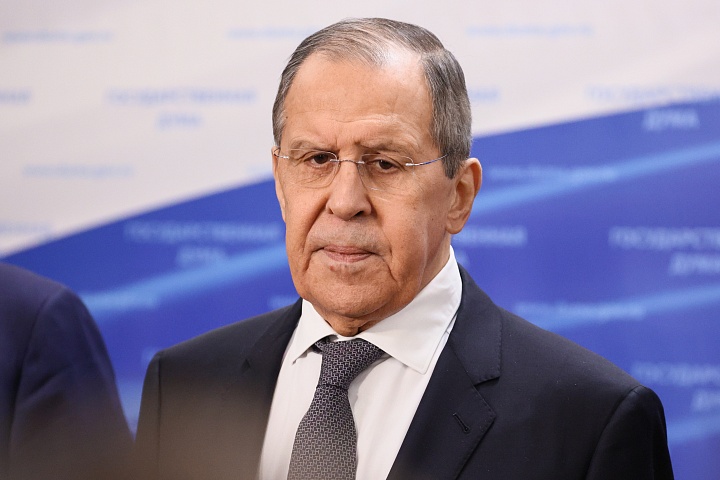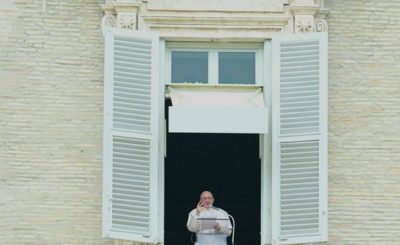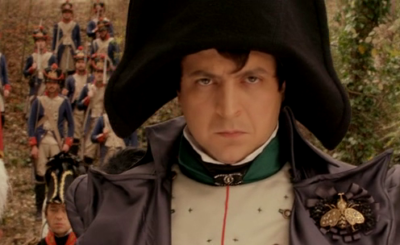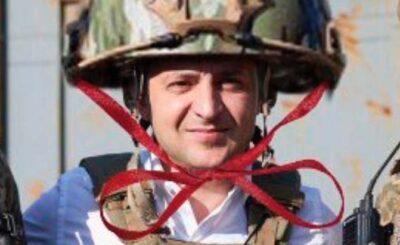Ministry of Foreign Affairs of the Russian Federation
see the beginning
Question: I have a question about Russia. Many people think that all countries are against us now. Are any countries supporting us? Are there such countries?
Sergey Lavrov: Yes, there are. Actually, they constitute a majority. I don’t want to speak harshly, but they are under unprecedented pressure. I never thought this possible. I knew that the Americans were ready to go to great lengths to prevent any positive movement towards a multipolar and equal world under the current conditions. But I couldn’t imagine in my wildest dreams that they would use dirty methods that are unfit for a great power. US ambassadors are instructed on a daily basis to “intimidate” the authorities of the host countries, telling them not to trade with Russia, not to buy from Russia or sell anything Russia needs, to reject Russian investments, not to communicate with Russia, and not to send ministers or delegations to Russia. This is not a joke. My friends have told me about this.
This did not begin yesterday. And Ukraine is not the reason for this. Several years ago, US Secretary of State Mike Pompeo went on a tour of Africa. During news conferences in every country he visited, he openly urged his “dear African friends” not to trade with Russia and China or accept Russian and Chinese investments. He argued that Russia and China were doing this for selfish considerations, whereas the United States would bring democracy and a free market to them. This was long before the current events. It is especially shocking that such “blackmail” tactics are being used against such ancient civilisations as China, India and Egypt. Similar demands were set to Turkey. Today Ankara has been allowed to keep the S-400 systems but urged to pull the plug on Russia. This is unworthy of a great power. Jen Psaki has said that China should understand that it won’t be forgiven for providing assistance to Russia. How can they treat a great nation like that?
Question: China has responded to that pressure quite harshly.
Sergey Lavrov: Yes, but Washington is being incredibly rude. This will not be forgotten. The situation will eventually improve. Articles pointing towards this have appeared in the West, including Germany. Many countries are wondering if it is wise to use US dollars in mutual trade so widely. Saudi Arabia agreed on using the yuan. This process cannot be stopped. President Putin has said on numerous occasions that by addressing their short-term, even if politically important, considerations in this way, the Americans are harming their own cause in the long term. The role of the US dollar will decrease. Trust in it is already falling dramatically.
Question: This is happening also because many people have seen that there are no rules of the game or any rules at all.
Sergey Lavrov: Yes, of course. When they speak about “a rules-based order,” this is double talk. They say that private property is untouchable. Whatever one may think about our oligarchs, [where is that principle] when their mansions and yachts are seized without a court decision, just on orders from the executive authorities. Squatters are occupying their mansions.
Question: This is like the expropriation of property after the October revolution…
Sergey Lavrov: Exactly. Where is the presumption of innocence, another fundamental value of Western, including liberal, democracy? All this is empty talk.
Question: I have a question about the international order. During the Soviet times, there was a socialist camp, a capitalist camp, and a non-aligned movement. In the wake of these events, should we expect any new entities to emerge that are not affiliated with the West?
Sergey Lavrov: Speaking of camps, let’s not forget that the West gave life to the term “concentration camp.” It showed what genocide, racism and much more are all about. By and large, the Americans are using their politics (its goal has been proclaimed) to promote a rules-based international order, which they themselves create and which Europe is willing to accept in any form. President of France Emmanuel Macron is the only one to continue to talk about the need for EU strategic autonomy, which is something that no one will allow to happen. All other EU members are already lying under the United States.
The Americans are building a unipolar world. If they don’t realise it, then I pity those who are behind these plans. At least China and Russia, two great civilisations, cannot accept a world that is unipolar. In any case, there will be some kind of a counterbalance. Someone will do it softer, and someone harder, but a bipolar world will emerge at the end of the road, which will be the forerunner of a multipolar world. That way, we will again create two camps for many years to come. A country like India will not be unquestioningly playing the American games. It is now being dragged into the “blocs” that are being formed in the Asia-Pacific region with the sole purpose of containing China and isolating Russia.
As part of the policy of “flirting” with India, the Asia-Pacific region was renamed the Indo-Pacific region. When the announcement to that effect was made, we asked how the Indo-Pacific region was different from the Asia-Pacific region. We were told that this is a more capacious and clear geopolitical formation. We then said that “Indo-Pacific” means that two oceans – the Indian and the Pacific – are part of it, so is all East Africa now part of this region? Their answer was no. If it’s “Indo,” does it include the Persian Gulf, which is part of the Indian Ocean? They dodged the question like the devil running from incense sticks. It’s nothing but geopolitical “flirting” with India, and our Indian friends are aware of it. We discussed it openly with them. They vehemently oppose the idea of being drawn into any military bloc whatsoever.
We are told that QUAD, which they tried to morph into something military, has so far remained an economic association. The economic cooperation has so far been based on the offshoots of ASEAN and the Asia-Pacific Economic Cooperation (APEC), with their doors open to all. Now, even the economic space is being fragmented through confrontational schemes.
AUKUS is a military-political bloc that is now making strong efforts to drag other countries, such as Japan and South Korea, into it with the goal to split ASEAN into two groups of five instead of one group of ten.
Question: The Turkish Foreign Minister is visiting Moscow today, and will fly to Kiev tomorrow. What can we expect from this visit?
Sergey Lavrov: I spoke with Mevlut Cavusoglu in Antalya last week. We had detailed bilateral talks with a packed agenda. The Russian and Turkish presidents speak regularly and consider major issues at their level. We subsequently implement the agreements reached in our practical affairs. This includes Syria, the Astana format. The Minister of Foreign Affairs of Iran visited us yesterday.
Russia, Turkey and Iran have plenty to talk about, including with regard to implementing our previous decisions. I would like to highlight the urgent need to eradicate terrorist groups in the Idlib de-escalation zone, the need to establish the Constitutional Committee as a permanent mechanism. It is going to resume work at the end of this month. I hope that the drafting body, which is drafting the new constitution, the constitutional reform, will begin its work on a permanent, continuous basis.
Libya is another matter where Russia and Turkey are actively involved in finding ways to support a political settlement.
Question: Will you be discussing Ukraine today?
Sergey Lavrov: We regularly discuss Ukraine in applied terms. There was a problem with Turkish citizens who, among others, were held hostage in Ukrainian cities. There are about 116 Turks in Mariupol at present. They were supposed to leave yesterday. We opened the corridors every day. But they weren’t allowed to go. We knew where they were being held – in a mosque in Mariupol, in the basement.
Question: How does Ankara react to Turkish citizens not being released?
Sergey Lavrov: Turkey understands that the problem is not on our end. They know that the corridors have been opened, but the problem is with the people who control the respective territories. They have engaged with Kiev to insist that people should be free to use the opportunities that Russia provides.
We also have other things on our bilateral agenda, such as the Black Sea, cooperation at the Organisation of the Black Sea Economic Cooperation (BSEC).
Question: Are there any reasons for your next meeting with the Ukrainian Foreign Minister, or is there nothing to discuss yet?
Sergey Lavrov: If there is interest on their part, we would need to understand what new things they intend to tell us, exactly. We need to know it is not just another attempt to create a parallel track, to blur the efforts made on the Belarusian track and simulate activity through external effects, something Ukrainians have been doing for the seven years they have been sabotaging the Minsk agreements.
President Vladimir Zelensky and Foreign Minister Dmitry Kuleba kept calling for a Normandy format summit to be held as soon as possible. When we asked why the Ukrainian authorities had not fulfilled the decision from the previous summit, something they were supposed to have done already, they just said – no, let’s sit down together and discuss it all. This is a stunt to imitate activity with more camera flashes. Television crews, everyone is sitting at the table discussing something, but no one is doing anything.
Germany and France unequivocally sided with Kiev in its reluctance to implement the Minsk agreements. They are now saying there is no need for any direct dialogue with Donetsk and Lugansk, and everything should be decided between Kiev and Moscow because Moscow “controls everything here.” They have been lecturing us all these years, while omitting any mention of the bombing of civilians and civilian infrastructure in Donbass, and they continue to be silent now.
One of the European Union leaders has reached out to us. We asked why they were so hysterical about what our military are doing as part of a careful special military operation (carrying out pinpoint strikes at military infrastructure), but had kept silent when a Tochka-U missile with a cluster warhead was fired at the centre of Donetsk on March 14 this year. And he said, we’ve heard your version of the incident. I am not kidding.
Question: What is the most difficult thing in the negotiation process now? What are our chances for peace?
Sergey Lavrov: There is always a chance. As a diplomat, one has no right to respond or act differently. Opportunities must always be sought and used.
I have been encouraged by some changes in rhetoric about more realistic perceptions of what is happening. However, any constructive statements are instantly, immediately, followed by the adoption of a law punishing anyone who communicates with Russians with 15 years in prison. It’s a game. I do not rule out that such confrontational initiatives are prompted from abroad in order to knock us off balance as much as possible. This seems to be their aim. This is being done by people who have completely lost touch with real political art.
When the Soviet Union collapsed, political scientists fell in price. No one invited them anywhere; the demand dried out. So they stopped training people in Soviet or Russian studies. This imbalance is now affecting many situations, including the key issue – the colossal underestimation of what is happening on the world stage, where real multipolarity is objectively emerging, and the colossal overestimation by many countries of their own capabilities and authority.



